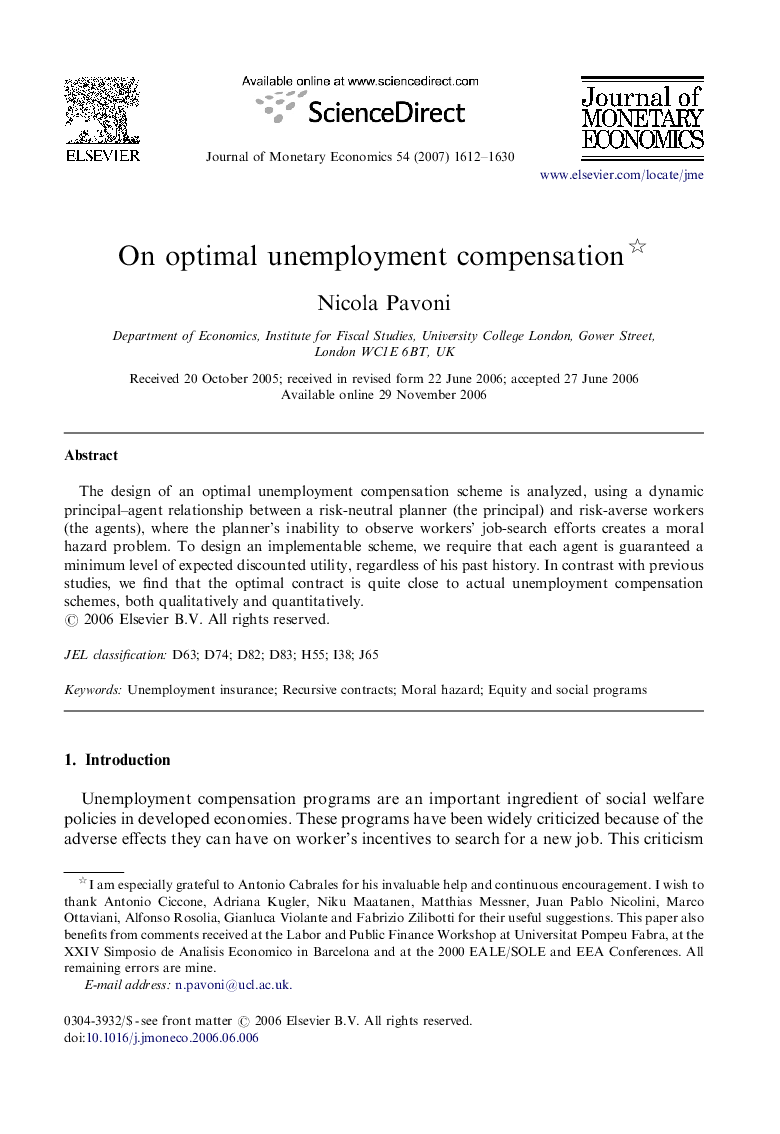| Article ID | Journal | Published Year | Pages | File Type |
|---|---|---|---|---|
| 967349 | Journal of Monetary Economics | 2007 | 19 Pages |
Abstract
The design of an optimal unemployment compensation scheme is analyzed, using a dynamic principal-agent relationship between a risk-neutral planner (the principal) and risk-averse workers (the agents), where the planner's inability to observe workers' job-search efforts creates a moral hazard problem. To design an implementable scheme, we require that each agent is guaranteed a minimum level of expected discounted utility, regardless of his past history. In contrast with previous studies, we find that the optimal contract is quite close to actual unemployment compensation schemes, both qualitatively and quantitatively.
Related Topics
Social Sciences and Humanities
Economics, Econometrics and Finance
Economics and Econometrics
Authors
Nicola Pavoni,
